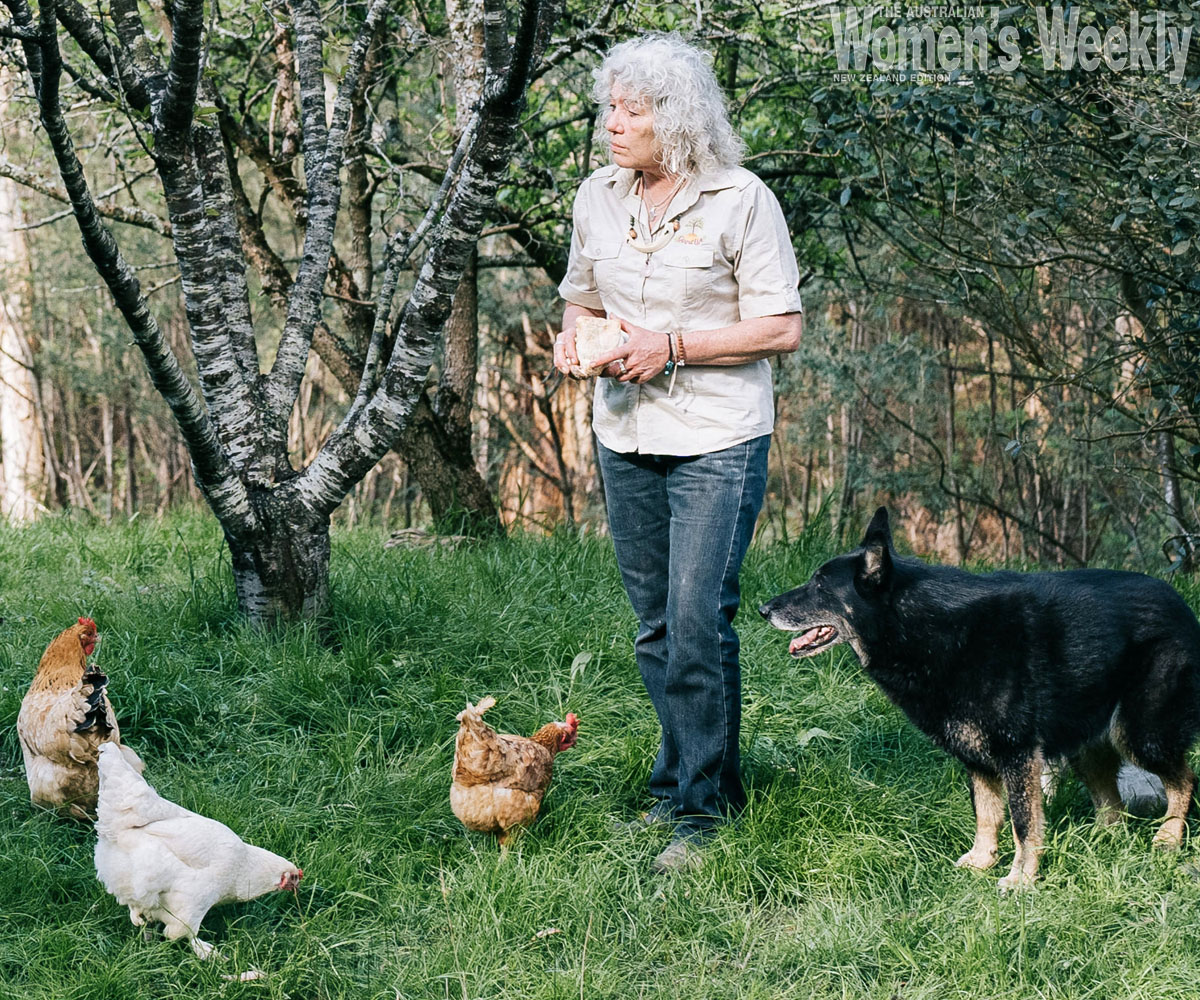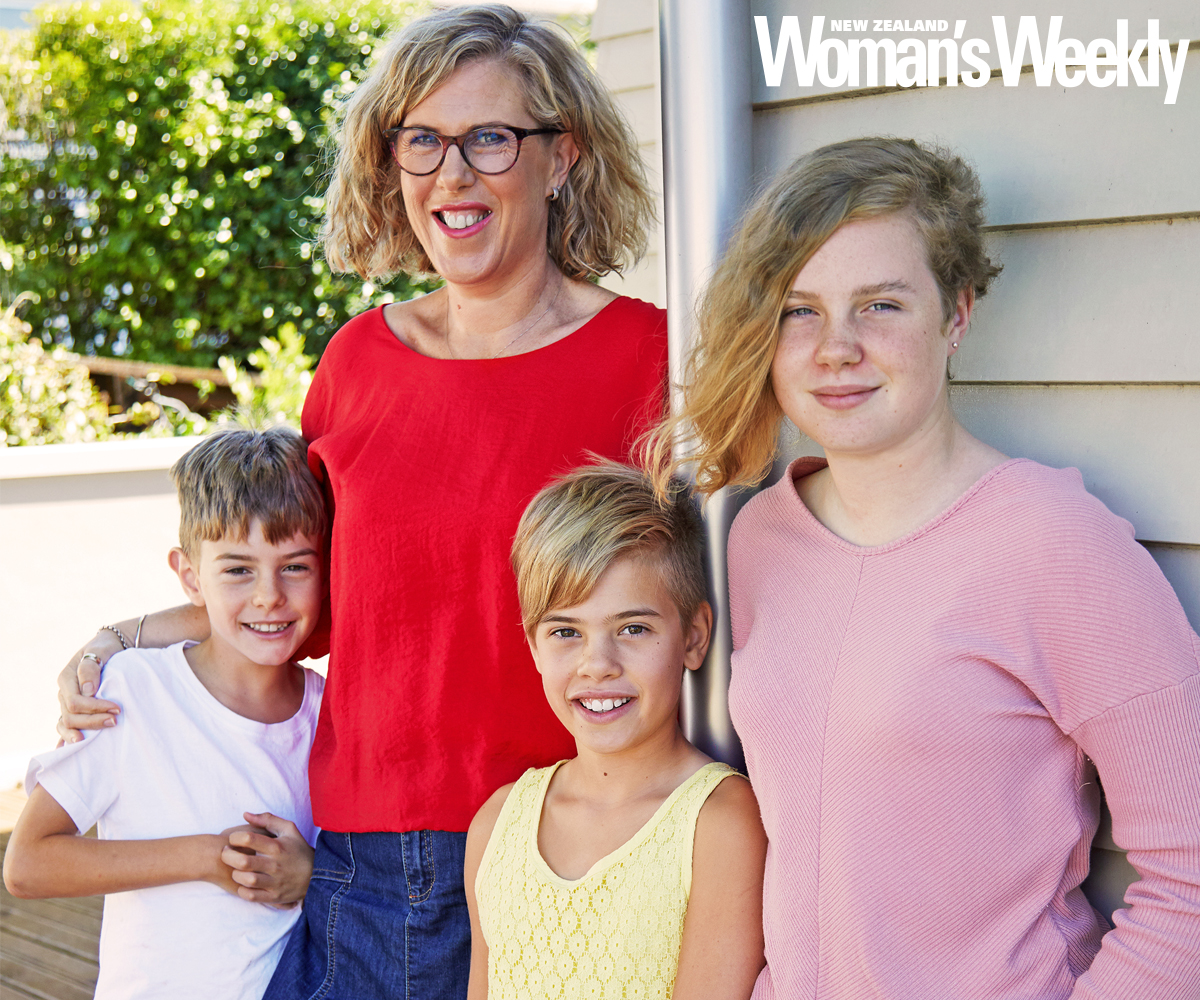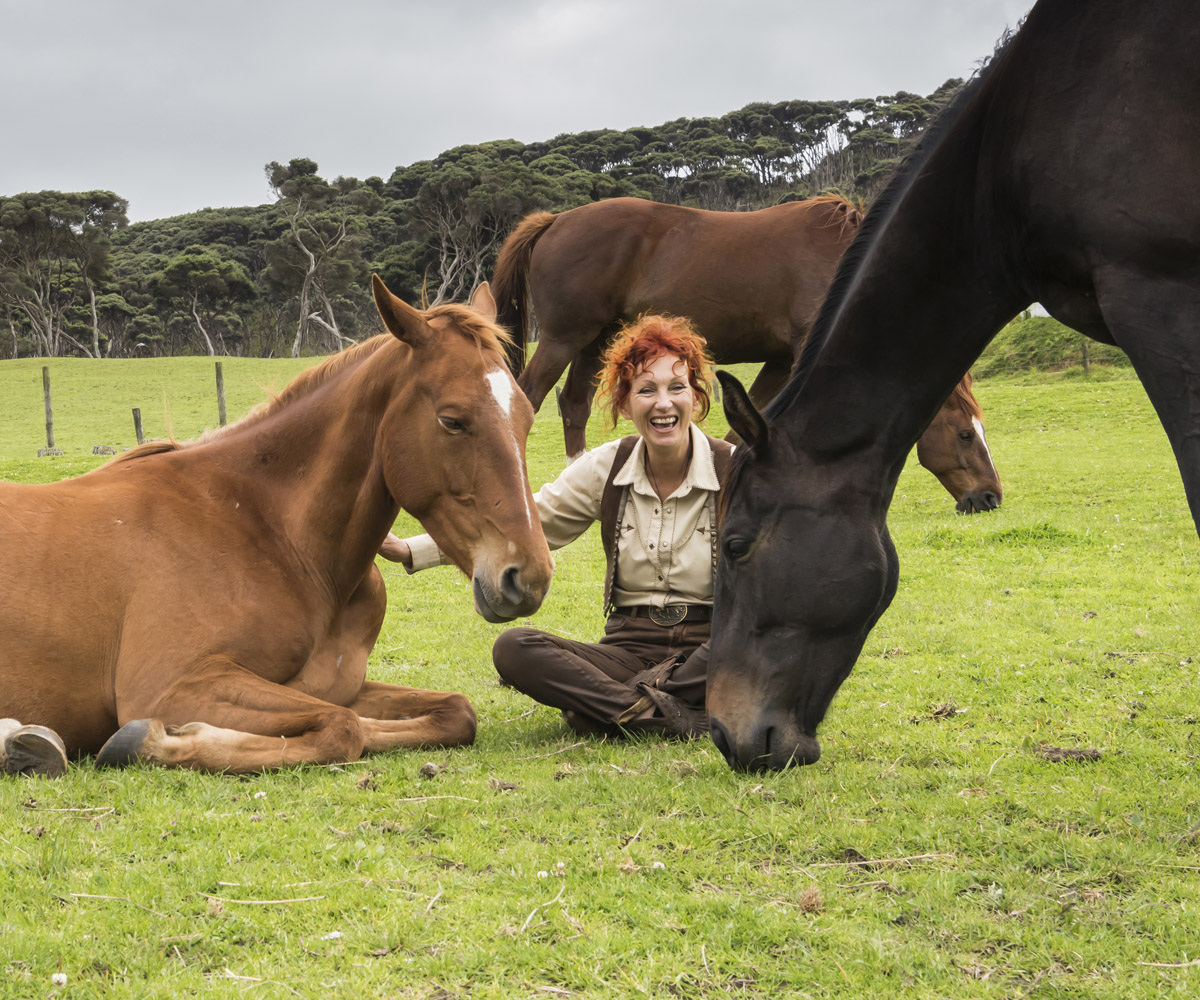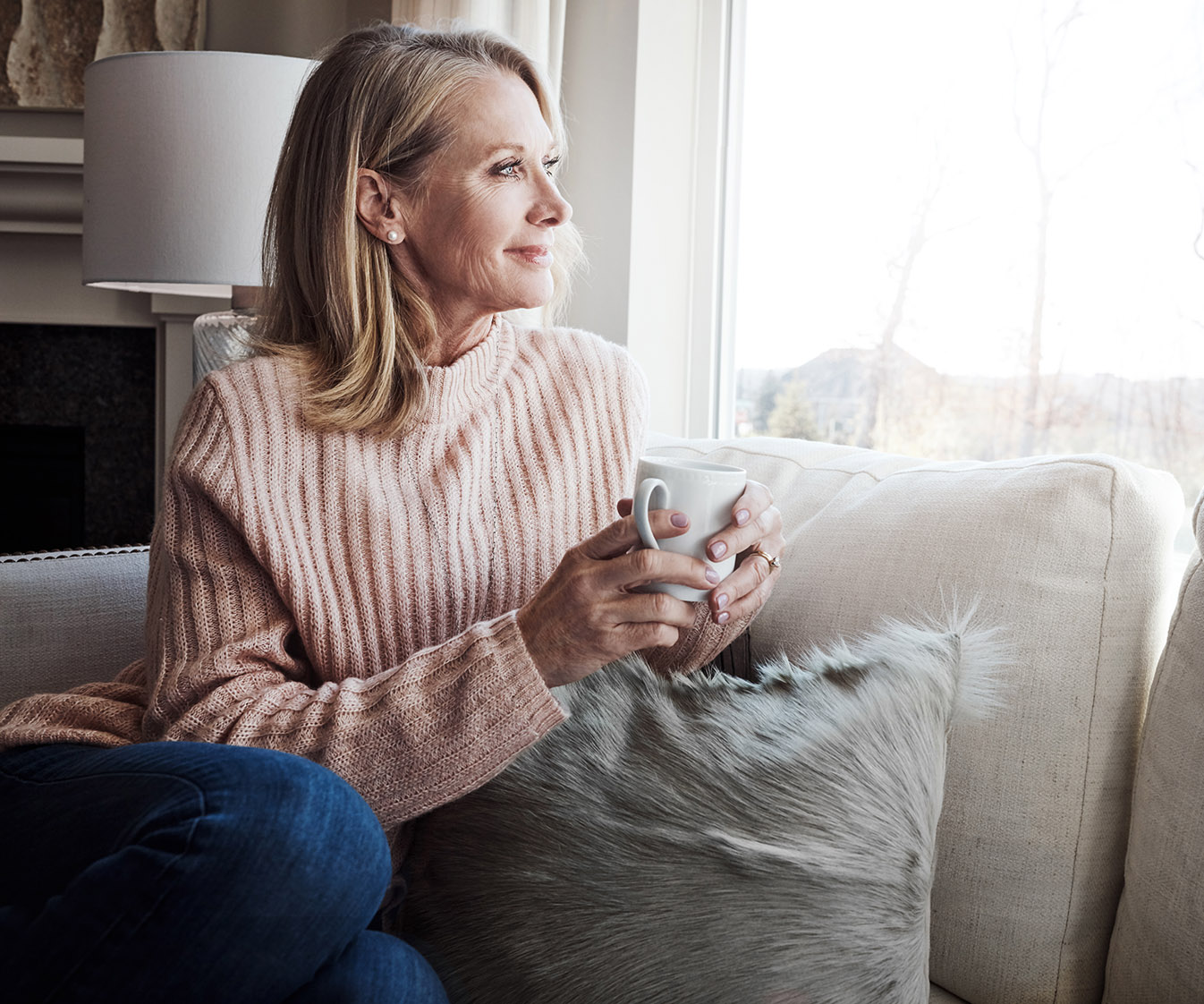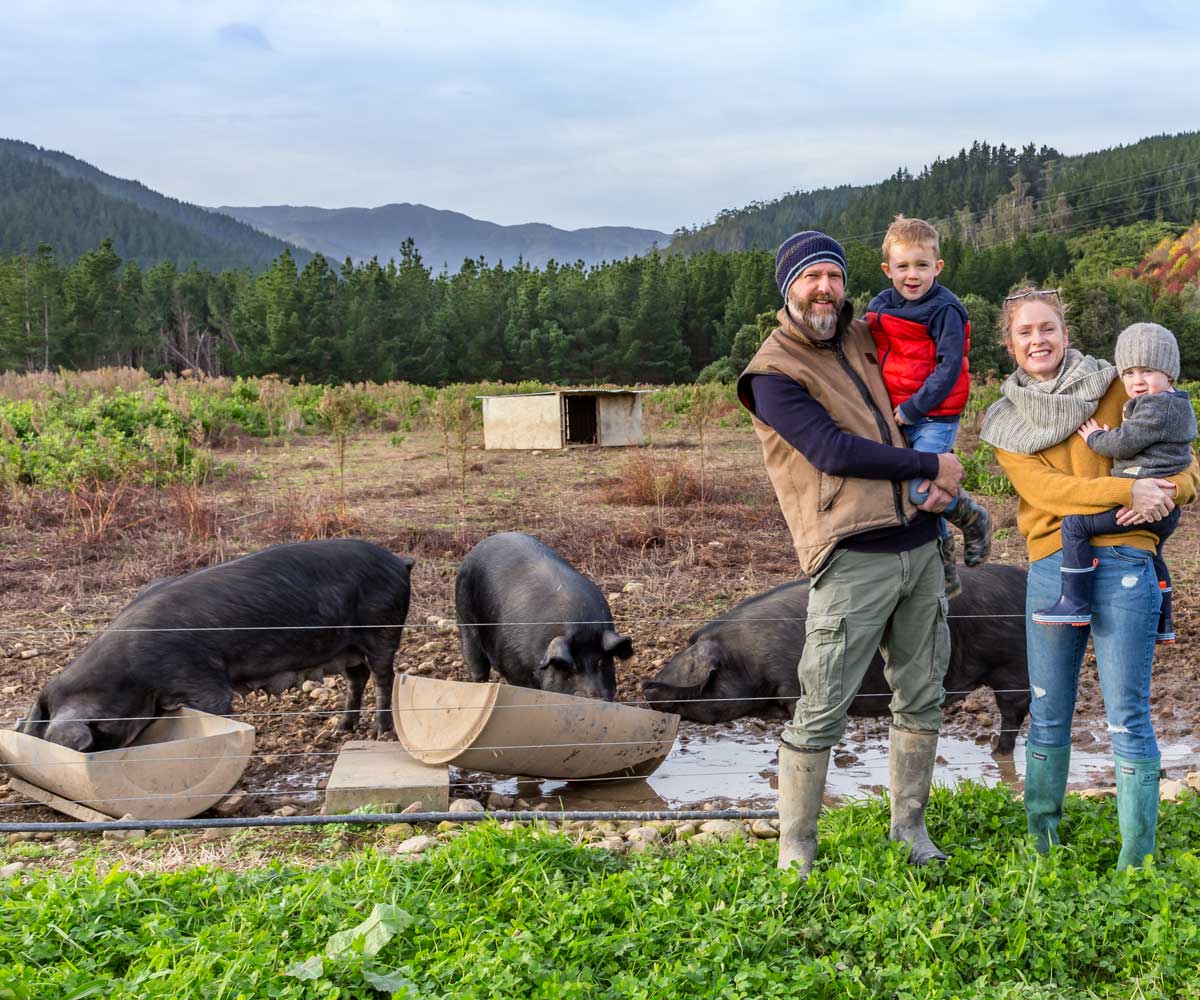Lesley Porter sees herself every day in the kids who come to her farm.
The lost and lonely, the orphaned and abused – she has been every one of them.
After losing her family in a car accident at the age of five, and shuttling unwanted from one relative to another for the next six years, Lesley wished that she had died too.
“I was a pretty broken unit,” says the 58-year-old.
“I cried a lot. I was shy, insecure, shut down.”
Animals, however, helped turn her life around.
When Lesley moved to Healesville in Australia’s Yarra Valley with her grandmother, the then 11-year-old horse lover offered to muck out the stables of a local riding school and holiday farm in return for pony rides.
Soon she was working there after school and every weekend, seeking refuge from a grandmother who barely tolerated her.
The couple who owned the place became her surrogate parents, and Lesley for the first time felt loved.
“It was an escape and a look at life how I’d never seen it,” says Lesley.
“I remember [the owner] Josie had this big V8 red Ford and she’d turn the radio on full-bore, singing and dancing. There was just this love for life, this joy, and my grandmother was always so sad and so bitter.
“When you’re not wanted all your life, you think there’s something wrong with you. It was the first place where everyone said, ‘You’re awesome.’ It’s elating – ‘Oh, my God, I’m all right.’ It saved my life. It gave me hope.”

That gift of unconditional acceptance was transformative, and ultimately inspired Lesley’s life mission.
In 2005, she turned her two-and-a-half hectare property in Yarra Valley’s Chum Creek into The Good Life Farm, a haven for a new generation of vulnerable kids.
Each week about 24 young people, aged seven to 17, take part in the farm’s 10-week life skills programme.
They are referred by schools, charities or government organisations, and some stay for more than four terms.
They might be wards of the State, on the autism spectrum, victims of school bullying or family violence, suffering depression or anxiety, perhaps questioning their sexuality.
All of them need a place to belong – somewhere they can slow down and just be – in nature and away from screens.
On their weekly visits, the kids feed the animals, learn about permaculture and go on bush adventures.
They acquire social skills, such as manners, that in an ideal world their parents would have taught them long ago.
Social interaction is so daunting for some of them that they can’t get out of the car on their first day; many can’t read or write.
For those who have developed a prickly armour, animals are the way in.
“A lot of kids love animals but they’ve lost all their trust in people,” explains Lesley, as she whips up toasties for the kids in her ramshackle farmhouse, surrounded by horse paintings and photos of lost loved ones.
“The animals help them connect.”
As the farm’s senior youth worker Jesse Rodier says, “You don’t have to put on a persona for a cow. Bring her food and she’ll love you. Brush her and she’ll love you even more. If a kid is angry and doesn’t want to talk, they’re happy to let our puppy lick them, and that will calm them down enough to talk to us.”
Outside, a colossal black pig bakes in the sun and a bunch of wood ducks glides across the pond, next to a farm shed-cum-classroom.
Amid the soaring eucalyptus trees, wattles and willows, Lesley sits on her back deck, her entourage of dogs around her: Bilbo Baggins, the ultra-shy rescue dog with intimacy issues; Mitzy, the German shepherd “into bad boys and fast cars”; and ever-loving Mr Dibbs, the Jack Russell who wags his tail so enthusiastically he almost levitates.
“Dibbs will intuitively seek out the kids who are stressed,” says Lesley, “and sit with them.”
The farm is also home to horses, sheep, goats, turkeys and turtles – and Lesley paints an affectionate picture of each quirky member of the menagerie, including Rosa,
the cantankerous alpaca.
“We celebrate differences and use the animals to show kids it’s all right to be different,” says Lesley.
The takeaway is clear: “They’re perfect just the way they are,” she says. “I say to them when they leave, ‘Be kind to yourself and be kind to others.'”
The farm has given 15-year-old Kate (not her real name) the confidence to make friends.
She was diagnosed with a brain tumour as a two-year-old and the cancer came back when she was eight, leaving her with crippling spasticity down one side of her body, as well as anxiety and depression.
“I was sad and I didn’t know what to do with myself,” explains Kate, who was referred to Good Life last year.
“I’m not very good at talking to people.”
The farm’s 500kg cow, Stimpy, though, is her favourite sounding board.
“I talk to her a lot,” says Kate, who hopes to work with animals after high school.
“Even though they can’t talk back, the animals kind of show they understand how you’re feeling.”
Now in her fourth term, Kate has bonded with her five classmates at the farm, and the group is working on vision boards.
“It helps us make goals and stick to them,” she says.
“I’m more hopeful now about the future.”
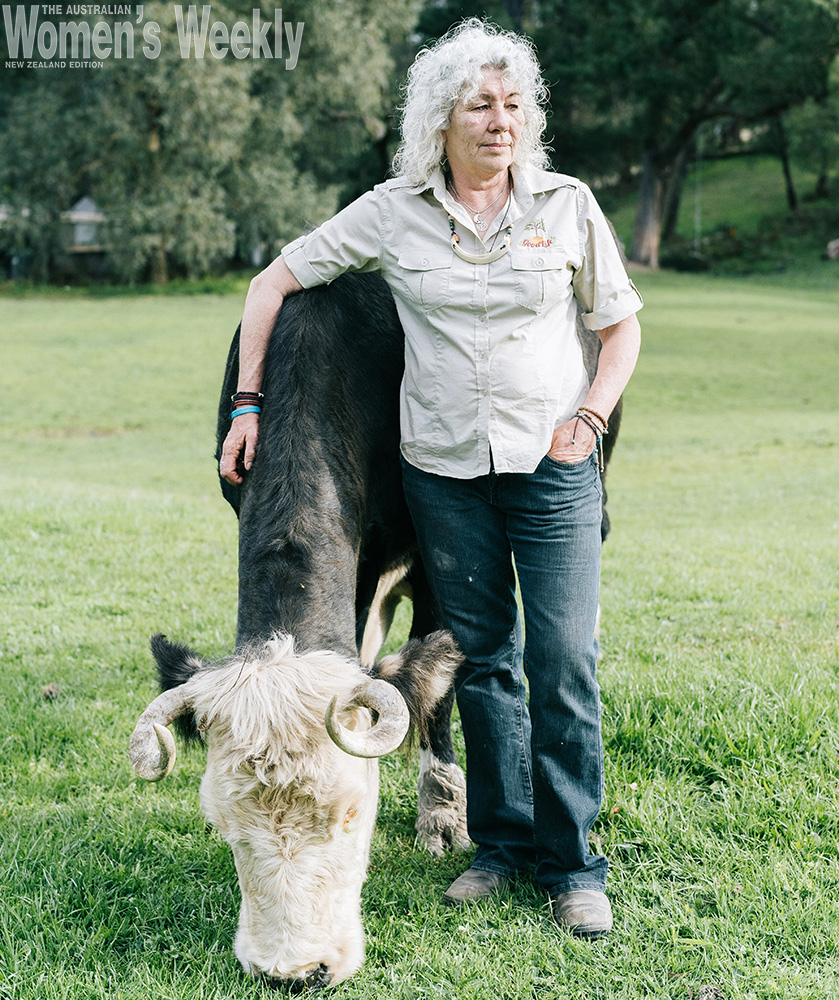
Lesley admits it’s difficult to evaluate how well the programme is working, but she has witnessed its healing power again and again.
Her hope is that a positive experience at the farm will plant a seed – perhaps show a child a healthier way of living or clarify what kind of future they’d like to have.
For kids who haven’t been nurtured, she says, looking after animals teaches them what it means to take responsibility for another life and treat it with respect.
Lesley insists on stopping to take dead animals off the road, for example, so they’re not repeatedly run over.
“The kids like that because they haven’t been cared for themselves. If you live in a world where no one cares or you’re insignificant, then to meet people who think everything is significant, it gives you another way of thinking and being.”
Jack Jonson joined the programme as a troubled 15-year-old soon after the farm opened and became a mentor. He is now 29 and a horticulturalist, but back then he was struggling with school bullies after the death of his father.
Caring for animals, he says, gave him “a sense of importance” and Lesley won him over with her laidback approach.
“She’s not pushing anything onto you,” he says.
“She’s your friend – and that’s massive when you may not have any at all. She knew that I was in pain and had been through a lot, and she sees the good in that.”
Lesley helps the kids reframe their chequered histories.
“She’s not perfect – she knows that – and that’s part of the beauty of the place,” says Jack.
“She makes it a positive that you haven’t had a pristine life, because it’s made you who you are. Look at Lesley.”

Lesley was born in Saudi Arabia, where her father was an architect working for the British airforce, and her parents split soon after they returned to England when Lesley was three.
Her mother, who was unwell, left the family and had nothing more to do with Lesley and her brother, while Lesley’s father remarried.
When Lesley was five, she was going for fish and chips on Good Friday with her dad, brother and three step-siblings when their car collided with a double-decker bus.
Lesley was thrown from the front seat, fracturing her skull, and the rest of the family was killed.
Soon after the accident, she moved to Australia with her stepmother and paternal grandmother. She lived with a series of relatives, but it was always made clear she was an imposition.
In fact, Lesley recalls at the age of six a relative refusing to take her hand crossing the road, telling Lesley’s grandmother: “She’s not my child. I don’t want her.”
The lowest point came when she was nine and moved in with a great-aunt.
Lesley wasn’t allowed in the house and had to stay in the shed with the animals.
For two years she was routinely left alone with a family friend, a convicted paedophile. She kept the abuse secret until her 40s.
That such cruelty could be inflicted on an innocent, already traumatised child defies comprehension.
“When people are sad,” Lesley reasons, “they pick on one person, and I was an easy target.”
The 11-year-old who landed on the riding school’s doorstep was “completely damaged”, recalls Lesley, but the place brought her out of her shell.
The holiday farm was full of kids from boarding schools, who effectively didn’t have parents either, and they all bonded.
It became home. Lesley met her husband there and married him at 18, buying the Chum Creek property in 1983.
The marriage ended after 12 years and two children, but they’ve stayed close.
After raising her family, Lesley decided to act on her lifelong dream, studying horticulture and youth work before opening the not-for-profit Good Life Farm 14 years ago.
Staying financially afloat has been a challenge, but Lesley’s resilience is formidable. And although she might come across as blunt – she says she loves kids but isn’t a big fan of people – there’s a softness and fragility too.
Certainly the tears come freely over our afternoon together.
Some kids have had a lasting impact, like the quiet nine-year-old girl who revealed halfway through the programme that she’d found her mum dead in the lounge room two years earlier – and that her dad wouldn’t talk about the mother because it was suicide.
Good Life urged the father to open up to the child, says Lesley, and it changed the girl’s life.
Over the years, through counselling and spirituality, Lesley has tried to make sense of her own childhood, and has concluded that it was meant to be.
“All the wrongs that happened to me, there was a reason,” says Lesley.
“I was saved because I had a job to do. I want to make a difference.”
It seems the farm is healing Lesley just as much as her young visitors.
“It gives me a life with a purpose and a reason to get up every morning. Sometimes I think I’ve got the best job in the world – you’re out in the bush, climbing a rock, or the car radio’s going full-bore and everyone’s singing along. It’s connection. It’s awesome.
